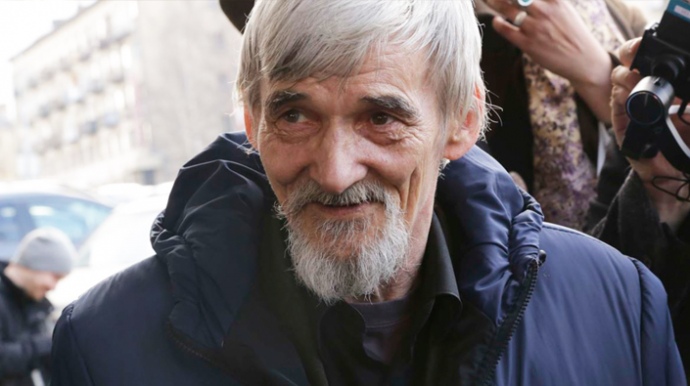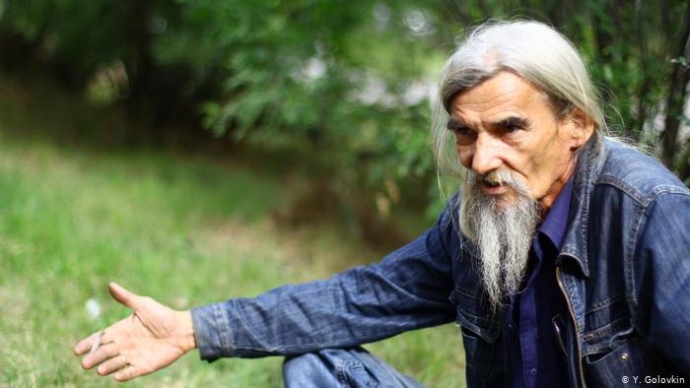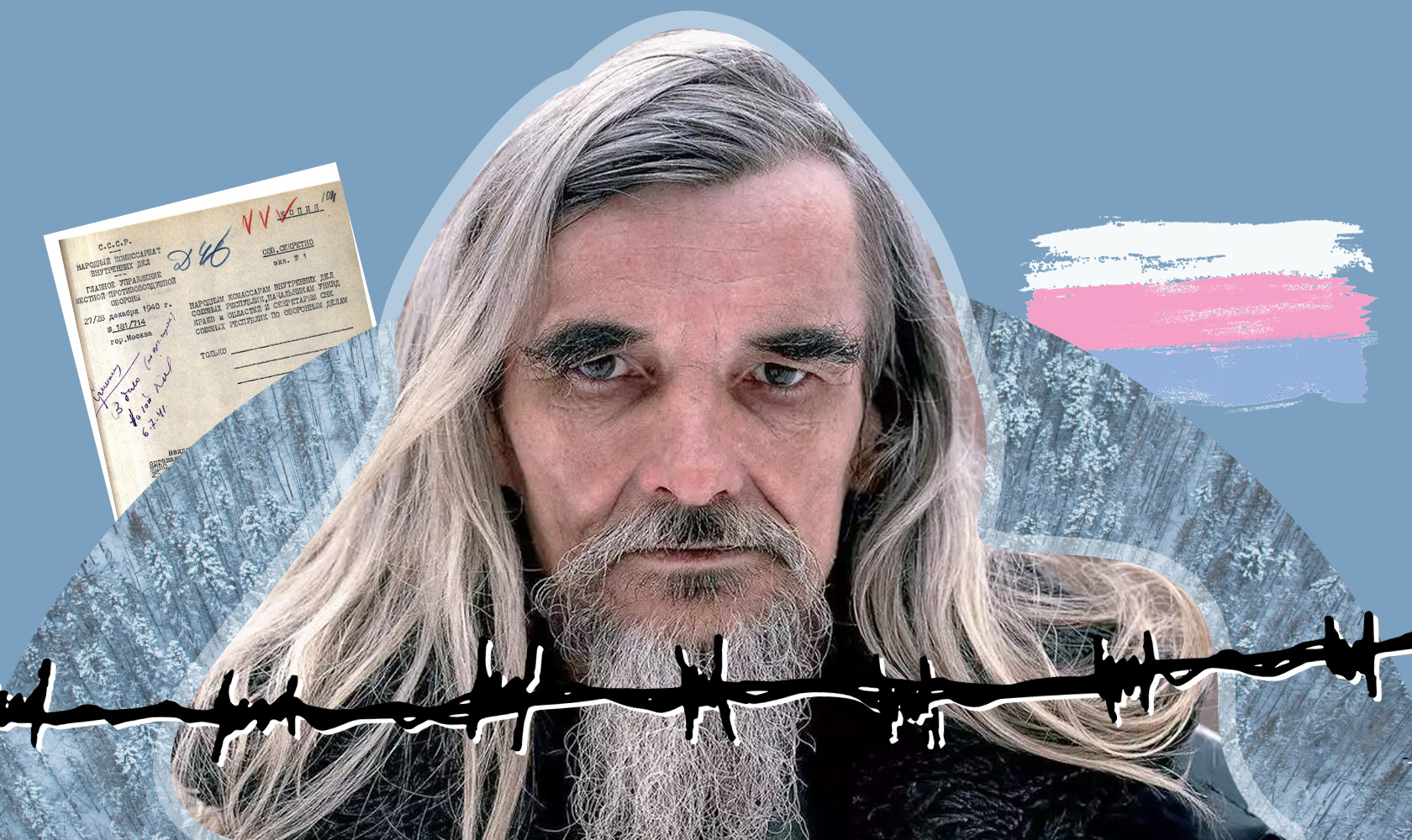On July 22, a court in Russia’s Karelia region sentenced 64-year-old historian Yuri Dmitriev. The man was found guilty of sexual assault against his adopted daughter and sentenced to 3.5 years in prison - most of which he has already served in a pre-trial detention center.
The historian himself, his colleagues, and many human rights activists believe the persecution is politically-motivated linked to his professional activities. Dmitriev dealt with one of the most inconvenient secrets of Russian history - the mass repressions of the Soviet Union.
This is not the first time the man was tried behind closed doors. In 2018, he already experienced Russian "justice." Then, in a similar case of "producing pornography", the historian was acquitted. But then the persecution was relaunched.
In Russia, several hundred public figures and artists supported Dmitriev. [...] Ukrainska Pravda asked Ukrainian human rights activists to tell about Yuri Dmitriev, his work, persecution, and why Ukraine should support the Russian historian.
Who is Yuri Dmitriev
 Tetyana Pechonchyk, Chairwoman of the Board of the ZMINA Human Rights Center
Tetyana Pechonchyk, Chairwoman of the Board of the ZMINA Human Rights Center
Yuri Dmitriev is a Russian researcher of the history of political terror in the USSR, a human rights activist, and the head of the Karelian Memorial Human Rights Center.
He devoted more than 30 years of his life to studying the history of the Gulag and Stalin's repressions in Karelia. Dmitriev searched for burials, compiled lists of those executed, and restored their biographies. Since 1997, five Books of Remembrance with such lists have been published.
Among the places of mass burials found by the historian are Sandarmokh in the Medvezhyegorsk district of Karelia, the largest execution ground in Karelia in 1937-38.
In the autumn of 1937 alone, 1111 prisoners of the Solovetsky Special Prison, including many Ukrainians, were shot dead in Sandarmokh.
Among them are Mykola Kulish, Les Kurbas, Mykola Zerov, Valerian Polishchuk, Antin Krushelnytsky with his two sons, Myroslav Irchan, Hryhoriy Epik and others. For a long time their burial place was unknown.
Thanks to Dmitriev's efforts, Sandarmokh was transformed into a memorial complex. Every year on August 5, he organized a rally there in memory of the victims of the Great Terror, which brought together people from different countries, including Ukraine.
After Dmitriev’s arrest, rallies dedicated to the memory of those massacred at Sandarmokh continued to be held. Photos: 5 August 2018, 7x7-journal.ru
Memorial, an organization that restores the memory of Stalin's repressions, was declared a foreign agent and fined millions of rubles. Its activists in various regions of Russia have been prosecuted.
Shortly before Dmitriev's arrest in 2016, Memorial compiled and published on the Internet a database of Soviet security officials during the Great Terror. Dmitriev and his colleagues did a great deal of work to establish the names, surnames, ranks, places of service, and other data of Soviet state security officers in the 1930s.
Shortly after the database was made public, Memorial began receiving threats and explicit "recommendations" to close the project.

Also in 2016, the Russian state media began to actively disseminate a version that those buried in Sandarmokh are allegedly not victims of repression, but Soviet prisoners of war shot by Finns during World War II.
After Dmitriev's arrest, in 2018 and 2019, the pro-government organization Russian Military History Society began excavations in Sandarmokh. The work was allegedly aimed at finding "the burials of prisoners of Finnish concentration camps and fallen soldiers of the Workers and Peasants Red Army in the battles against the Finnish occupiers in Karelia in 1941-1944."
This happened despite Finland long ago handing over to Russia and publishing archival data on the burial of all 19 000 Soviet prisoners of war who died in Finnish captivity.
Thus, the fabricated criminal case against historian and human rights activist Yuri Dmitriev is yet another proof of the Russian authorities' attempts to rewrite history and silence the voices of those who ask uncomfortable questions.
"I manage - not often, but sometimes - to find places of mass human tragedies. I connect them with names and try to make a place of memory in this place because memory is what makes a person human," Dmitriev said on July 8 in his last word before being sentenced in a Petrozavodsk court.
What the Russian authorities accused Dmitriev of and how the trial went
 Maria Tomak, co-coordinator of the Media Initiative for Human Rights
Maria Tomak, co-coordinator of the Media Initiative for Human Rights
When you look at the trial of the Karelian historian, certain parallels between the Soviet era and the post-Soviet period come to mind. It is hard to imagine something more destructive than accusations of pedophilia for a person whose main life capital is his reputation.
It is not very convenient to write about the process without having access to documents and without attending court hearings. Therefore, our idea of Yuri Dmitriev's case is based on Russian liberal sources.
After the acquittal in the first case in April 2018, some in the liberal community were close to announcing a new “thaw” [like in the times of late Soviet leader Nikita Khrushchev - Ed]. But soon the prosecutor's office protested, and the Supreme Court of Karelia overturned the decision of the first instance.
So appeared the second case, the preparation for which, according to Novaya Gazeta, began already on the day of the verdict.
After the appearance of the first case, the elderly historian spent more than a year in the pre-trial detention center. Now he has been in custody again for more than two years - since June 2018.
The set of articles in his cases that eventually were merged into one is very serious and can shock the untrained reader. They concern the abuse of minors and their use for the production of pornography, illegal possession of weapons, sexual violence against a child [in the end, the historian was found guilty only under the last article - Ed].
The first case is based on photos of his adopted daughter, who was photographed without clothes, found on the historian's computer.
As Dmitriev explains, it is a kind of insurance that guardianship
As Dmitriev himself explains, this is a kind of insurance so that the child protection authorities do not take the child away from him on contrived grounds, demanding basically ransom, as it happens in Russia.
That is, the father regularly recorded that there were no injuries or bruises on the child's body, and also monitored the development of the girl who had a number of illnesses after living in an orphanage.
It was in this case that the historian was initially acquitted until there a "reinforcement" arrived at the prosecutor's office.
The second case was opened at the request of the girl's grandmother, who was the one who once handed the child over to an orphanage.
The statement was later supplemented by interrogations of the intimidated and traumatized child herself. According to experts, she was pressured to receive the necessary answers, and the girl was also asked leading questions.

No independent examination conducted in both trials confirmed the terrible accusations against Dmitriev. And the summary of the second case is well stated in the material of Novaya Gazeta:
"Did Dmitriev touch his foster daughter's crotch? Yes. Did he do it because of pedophile disorders or some criminal intent? No, he did it to check whether the clothes are dry when he heard the smell of urine, which is confirmed by three commission examinations of Dmitriev himself and an epicrisis [a judgment about the patient's condition - Ed) regarding the girl’s urinary incontinence."
Nevertheless, the prosecutor's office demanded 15 years in jail for the historian.
The four-year story of this persecution contains a full set of trademarks of Soviet political cases. The first “anonymous report” which launched the first case, a secret search without the homeowner and witnesses, cellmates who, being pressured by threats, tried to force Dmitriev to admit his guilt, the participation of propaganda media in the campaign against Dmitriev.
And finally - the accusations themselves, which are aimed if not at putting a person behind bars, then definitely at devastating discreditation and resemble the old Soviet intelligence technique called the "rotten herring."
At the same time, it seems that few people are interested in what the child is going through, the very child who the law enforcement officers, courts, and state officials are so determined to defend.
The girl is now 11 years old, she lived in Dmitriev's family for eight years. The man himself grew up in an orphanage and carefully prepared for adoption and scrupulously followed the rules.
Since 2016, the girl is again under the control of the child protection authorities. Her nude photos were shown live on state propaganda media. She was subjected to psychological pressure by the entire state Leviathan to obtain "evidence" for the case against her father.
Various versions have been voiced about what triggered the case. For example, Novaya Gazeta links it to the former head of the FSB department in Karelia, Major General Anatoly Seryshev.

Memorial believes the case may be part of a campaign to pressure and discredit their center.
This seems logical given the numerous fines for violating the law on "foreign agents" that have befallen the organization in recent years, along with other pressure from the government.
And here, in fact, it is very difficult to understand what irritates the Kremlin more: Memoria’s work with historical memory or their support of modern political prisoners, including Ukrainian ones.
Adding weight to the assumption that the case was initiated or approved at the highest level is the participation of key Russian propaganda media in the campaign. Propagandists from NTV, for example, even discussed "the preparation of Dmitriev's escape to Poland," although he does not own a travel passport.
What can we do?
Perhaps in this sense, the most important thing that Ukraine can do is to implement the project of creating an archive of Soviet punitive services as quickly and efficiently as possible. Because these archives are one of the keys to understanding the roots of the current Russian regime.
In an interview, Dmitriev said that while in Sandarmokh, he heard "either a groan or a rustle of the wind: remember me, and me, and me."
Apparently, the same moan is heard by both Russian security forces and the Kremlin. To silence the voice of the historian means for them to silence all these voices from the past that can tell the truth about the nature of Russian autocracy today.
Why Ukraine should defend Yuri Dmitriev
 Oleksandra Matviychuk, Chairwoman of the Board of the Center for Civil Liberties, who launched a flashmob in support of Dmitriev on Ukrainian Facebook
Oleksandra Matviychuk, Chairwoman of the Board of the Center for Civil Liberties, who launched a flashmob in support of Dmitriev on Ukrainian Facebook
The Kremlin is instrumentalizing history and using it instead of state ideology.
The narrative "we can repeat it" shapes an attitude to war as a "holiday of victory," while the memory of the millions of dead and unborn is being blurred. And the mantra of Stalin as an "effective manager" portrays mass repression as "necessary in that historical time."
Unfortunately, people do not understand that by justifying the crimes of the communist regime, they return to these "historical times." This means that they will soon become victims themselves.
Yuri Dmitriev did not simply bring back from oblivion the names of thousands of Ukrainians shot during the Stalinist terror. He searched for burial sites for more than 30 years and compiled lists of the dead in Sandarmokh and Krasnyy Bor. And this was enough to challenge the authoritarian regime in Russia.
The Kremlin is desperately trying to erase the "uncomfortable truth" to replace it by its propaganda concepts. It must not simply deprive Yuri Dmitriev of the opportunity of continuing to investigate Stalin's repression. The very name of the 64-year-old historian should be disgraced.
Ukrainians have already felt the effects of the Kremlin's attack on historical memory.
In 2014, Russia launched armed aggression and occupied Crimea and part of Donbas. The other day in Luhansk, a bas-relief of [Ukrainian poet] Taras Shevchenko was knocked down from the entrance to the university, and the city of Donetsk was renamed into Stalino a month ago, and now this name will be used in parallel with the existing one. It's not a coincidence.
- Read more: Stalin-era city names to be used in occupied Donetsk, Luhansk as part of “great victory” cult
It so happens that the memory of the dead protects the living. And we must speak in defense of Yuri Dmitriev, who brought back to us the memory of the thousands killed during the Great Terror. That's why I and like-minded people launched the flash mob #UkraineStandWithDmitriev which you can join as well.
Read more about Dmitriev and the trial:




